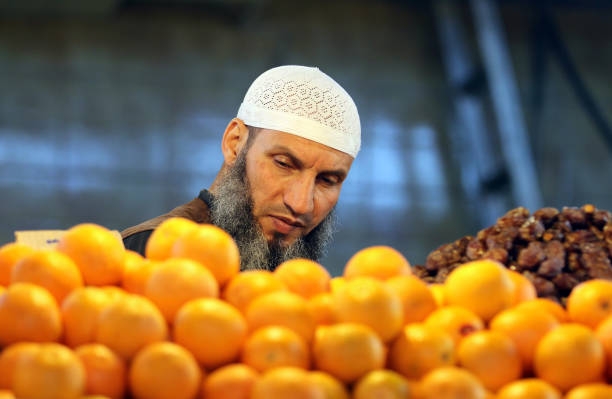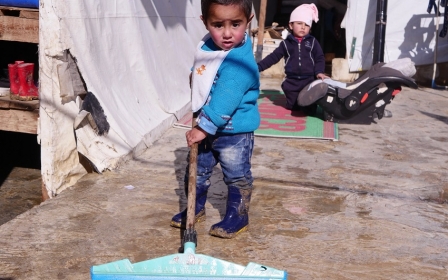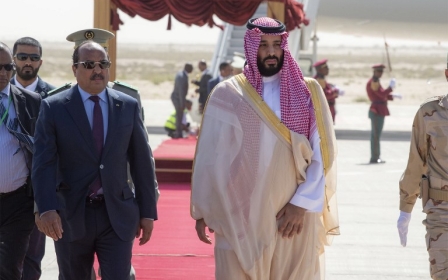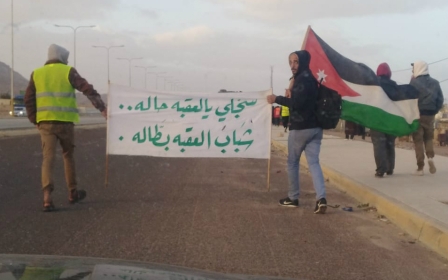Arabic press review: Investors flee Jordan as economic situation deteriorates

Investors hustle to escape from Jordan
Investors are fleeing Jordan as the kingdom continues to struggle economically, reports online news site Arabi21.
Jordan's Prime Minister Omar Razzaz, who replaced Hani Mulki after he resigned last June because of massive protests, told Reuters this week that the economy is back on track.
Over the past three years, Jordan has lost $1.8bn in real estate investment, which has gone instead to Cyprus, Turkey and the United Arab Emirates, according to Zuhair Omari, president of the Jordan Housing Developers Association.
Around 35 international brands with around 700 employees have left the kingdom since 2016 to cut their losses, according to Asad Qawasmi, who represents the clothing sector for Jordan's chamber of commerce.
Stay informed with MEE's newsletters
Sign up to get the latest alerts, insights and analysis, starting with Turkey Unpacked
Investors are leaving because of the decline in purchasing power for Jordanians, who are now unable to afford the housing that they planned to build, as well as high costs in the country and legislative instability.
The kingdom has tried to attract investors by granting them Jordanian citizenship and permanent residence in certain cases, but this move has not stemmed the exodus, Arabi 21 reported.
Saudi artist accused of supporting terrorism
A famous Saudi artist has sparked controversy in the kingdom after saying he was interrogated by authorities for financing terrorism, in a video posted on Twitter.
Posted after the alleged questioning, Fayez al-Malki, who is known for raising funds for humanitarian causes in Saudi Arabia, says in the video that someone who asked him for financial support turned out to have connections to terrorist activities.
"I have shared a post about a needy person, but unfortunately, he was not in need. It turned out that the person is related to terrorism and I sympathised with his good intentions and published his bank account," the actor said in the video.
Al-Malki called on all celebrities to abstain from raising funds: "Do not sympathise with anyone and don't share the bank account of anyone, no matter how bad his situation is"."
He continued: "I am talking from my own perspective. When you are driven by compassion and enthusiasm and you feel heartbroken, no one will help you if the inspectors or police call you and summon you for an investigation on terrorism charges."
Protests as Tunisian businessman slaps female police officer
Tunisian police officers and unions demonstrated in Tunis over the weekend after a businessman slapped one of their female colleagues, according to the London-based newspaper al-Quds al-Arabi.
The businessman and officer were arguing about a residency certificate when he slapped her and was put under arrest by security forces, according to media outlets and social media websites. He was later released.
The protesters, demonstrating in front of the National Security Department on Sunday, called on parliament to pass a law protecting security officers as soon as possible.
A draft of the law has already triggered controversy in Tunisia, with unions and activists arguing that it could further entrench the power of the police in the country and reduce rights and freedoms gained by citizens since the 2011 uprisings.
Syrian refugees in Jordan getting poorer
The living situation for some Syrian refugees in Jordan has improved in recent years, but most still live in poverty and depend on subsidised services, according to a recent study cited by Jordan's Al-Ghad newspaper.
The study was carried out by the Oslo-based FAFO Research Foundation in cooperation with the Jordanian Department of Statistics and the Ministry of Planning and International Cooperation.
It found that six out of 10 Syrian refugees believe that future developments regarding their living conditions will be positive, while 30 percent of them do not expect their situation to change. Another 10 percent believe their living standards will deteriorate.
The study also found that the income of 43 percent of Syrian refugee families has decreased during the last two years with 48 percent reporting the same income and 9 percent saying their income had increased. Two-thirds of the families have debts.
Food insecurity still runs high among the community, with 16 percent suffering from chronic health conditions and 78 percent in need of medical assistance.
*Arabic press review is a digest of reports that are not independently verified as accurate by Middle East Eye.
Middle East Eye delivers independent and unrivalled coverage and analysis of the Middle East, North Africa and beyond. To learn more about republishing this content and the associated fees, please fill out this form. More about MEE can be found here.




